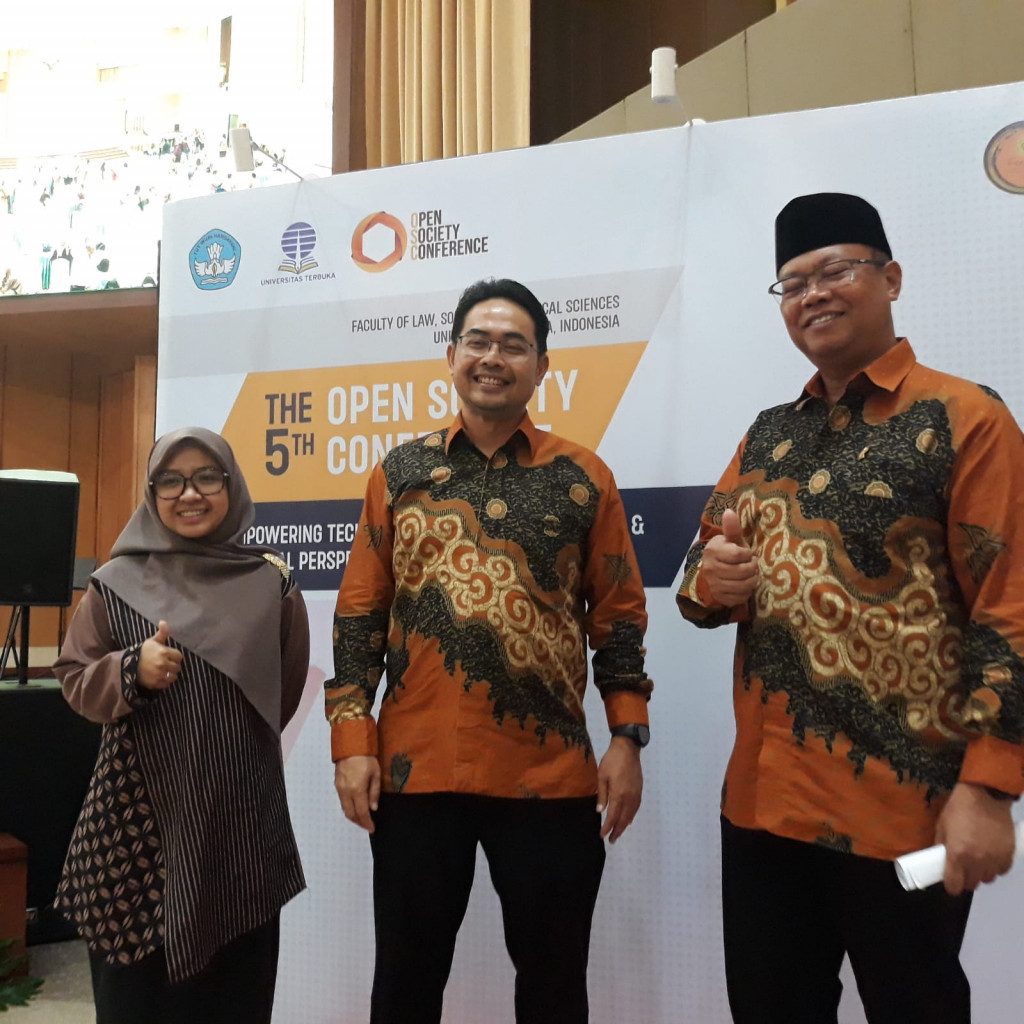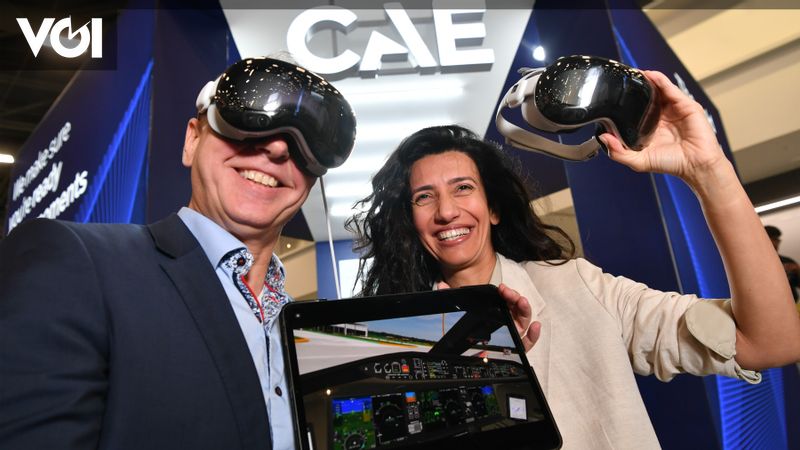Jakarta: The Open University (UT) has made two breakthroughs in the use of technology in its distance education. These two advancements are the semi-online proctoring exam and the use of artificial intelligence in the on-campus Take Home Exam (THE).
This was conveyed by Ojat on the sidelines of the international conference Open Society Conference (OSC) 2023. Chancellor of the Open University, Ojat Darojat, said that the 5th year of the OSC is back with a theme that encapsulates the spirit of a challenging era: “Empowering Technology: Humanities, Business, and Policy Perspectives in the VUCA Era.”
“This is an annual activity organized by the Faculty of Law, Social and Political Sciences, only on a national scale. However, along with global developments, society is becoming increasingly globalized, which is why we also involve international speakers,” Ojat said of UT. campus, Tangerang South, Wednesday September 13, 2023.
What do you think of this article?
Ojat said this program was in line with UT’s existence as a university offering distance education by adopting modern technology. “It is important to collect share your knowledge on current issues, notably UT which is the most campus leading in distance learning,” Ojat explained.
Two breakthroughs
When it comes to the application of technology to learning, UT has made two advances. These two innovations constitute a special examination program, namely the Semi Online Proctoring Examination (USOP). The USOP is offered by the Open University to students who are unable to attend the exam in person due to an emergency.
In general, students who have the opportunity to participate in the USOP are students who perform Hajj, work abroad, work abroad, are pregnant and approach the HPL and students who do the experience accident on UTM’s D-day.
“Now the exam can take place in an open space, not just in a closed room. It can be done from the office to the top of the mountain, provided there is an internet connection,” Ojat said.
USOP is a type of synchronous examination where students can participate in examination activities virtually from home or from the student’s location and complete them virtually. in real time online (directly) through hardware such as a computer/laptop connected to the UT server via the Internet network.
Apart from this, the second advancement is the use of artificial intelligence in conducting the Take Home Exam (THE). “We are developing a take-home exam proctoring system that uses AI-enabled machines. So THE exam can be done by machines and the costs are very cheap. There is no need to involve much of people for supervision,” Ojat said.
Currently, Ojat said, a tool is also being developed to detect similarities in students’ exam responses. “With this AI, for example, if there are 1,000 people in a course, exam answers will be entered into the system, it will then be known if there is plagiarism activity and academic sanctions will be imposed,” he explained.
With these two advancements, Ojat said, the budget could save up to billions of rupees. “Technological advancements really help in organizing learning, the process is faster and the quality is better. The costs are also cheaper, there is no need to spend billions like yesterday,” he said .
Ojat said this online proctoring exam has been going on for three years. Meanwhile, the Take Home Exam system is still under development. “But it will be ready to use this semester, it can be used in December,” Ojat emphasized.
In an increasingly complex world in the era of Volatility, Uncertainty, Complexity and Ambiguity (VUCA), the 5th CSO plays an important role in presenting multi-dimensional perspectives that will address issues in the fields of technology, humanities, business and political perspectives.
This seminar featured speakers from bureaucrats and technocrats such as East Java Vice Governor Dr. H. Emil Elestianto Dardak, B.Bus., M.Sc as the keynote speaker. Apart from that, there were also four speakers, namely Steve Nouri, Founder of AI4Diversity and Chief AI Evangelist from Australia, Ismail Fahmi, Founder of Drone Emprit and PT Media Kernels from Indonesia, Dr. Carin Holroyd from the University of Saskatchewan, Canada, and Rahmat Budiman, Ph.D. from the Indonesian Open University.
It is hoped that the holding of this conference will constitute a step in increasing the number of international publications, with a new status of higher education establishment with legal personality. OSC attracts the attention of many scholars, teachers, practitioners, student teaching staff, from within UT and outside UT.
To date, 120 online and offline paper presenters from various countries as well as hundreds of participants from the general public and academic community have participated in hosting this year’s conference activities.
The publications of the OSC conference in collaboration with Atlantis Press are indexed by Web of Science and six Sinta 2 journals which will contribute to the dissemination of the results of the conference in the academic and industrial worlds. We hope that the entire 5th OSC event series will provide a clearer vision of how the power of interdisciplinary collaboration can form innovative solutions to the dynamics of ever-changing times.
Studying at your favorite campus with a full scholarship is no longer a dream, as there are 426 full scholarships from 21 campuses across different cities in Indonesia. For more information, click osc.medcom.id.
Don’t forget to follow updates other news and follow Google Account News Medcom.id
(UCE)

“Travel nerd. Social media evangelist. Zombie junkie. Total creator. Avid webaholic. Friend of animals everywhere. Future teen idol.”


:strip_icc():format(jpeg)/kly-media-production/medias/3387188/original/007486800_1614303448-banner__1_.jpg)



